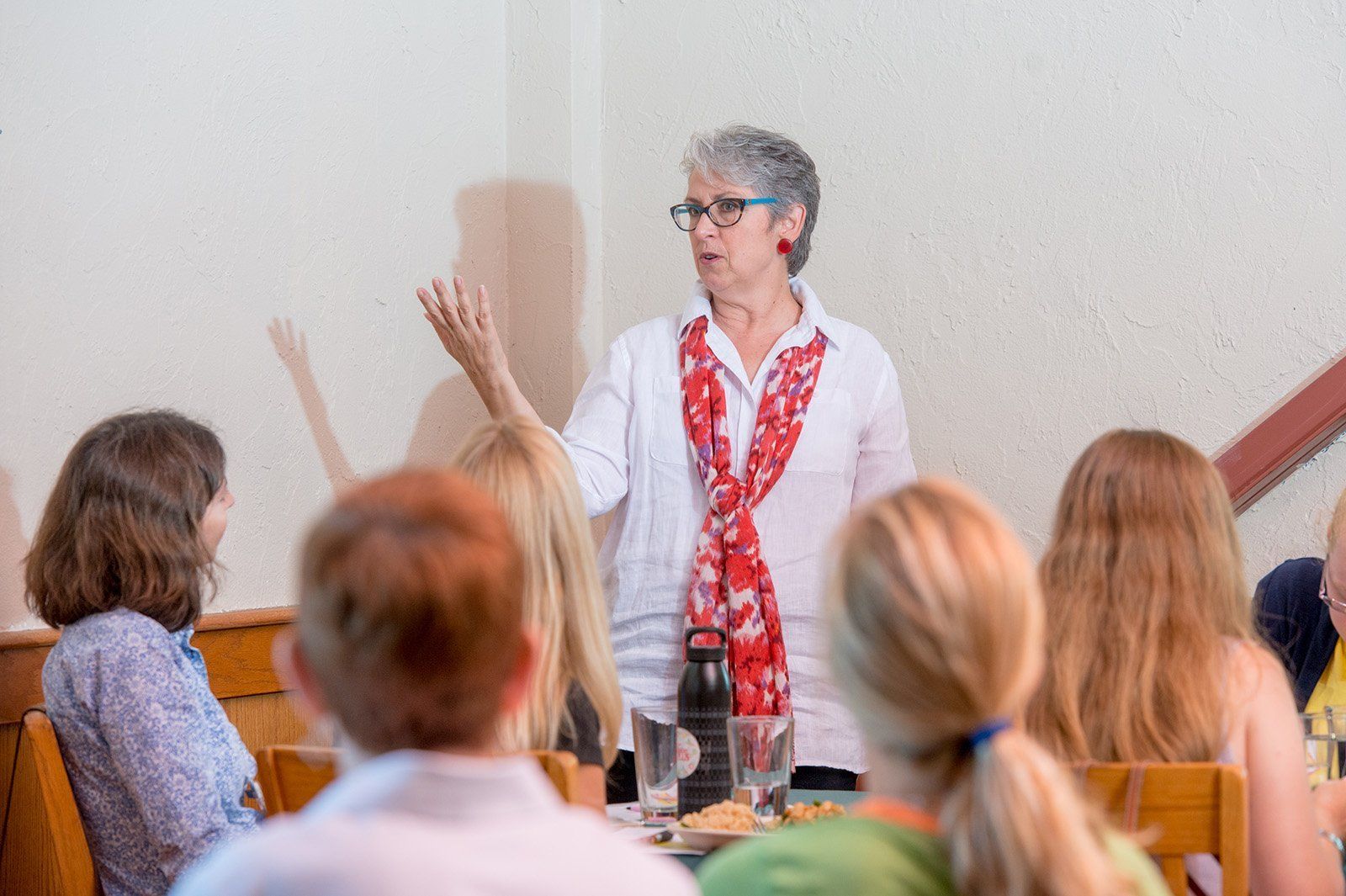The way to Peace?
- By jay@northeastkingdomonline.com
- •
- 31 Jan, 2015
- •

"Understanding comes through communication, and through communication we find the way to peace."
Ralph C. Smedley, founder of Toastmasters
Can knowing how to speak confidently and to communicate effectively and respectfully really change the world? I believe so. As a student of history, I know that while wars are fought on the battlefield, ending them--or better yet, avoiding them in the first place--is something that happens when people sit down and talk eye-to-eye. Peace comes when the yelling stops. It arrives when people start to understand the motivations and the fears, the hopes and the needs, of others. Peace comes from compromise, from listening, from empathy and from personal connection--peace takes place when people really communicate.
Ralph Smedley knew this in 1924 when he founded Toastmasters. He had been witness to the brutality, stupidity, and futility and World War I. He had seen men struggle to find their place in society in the aftermath of it. And so he started what would become Toastmasters International in a YMCA basement in Santa Ana, California. There he and other men helped each other overcome their fears of public speaking and polish their social and communication skills. Smedley knew that the impression we make on others is immediate and long lasting, and that to find fulfilling careers and lifelong friends, a man--and a woman--need to be adept at connecting with everyone they meet. I can imagine the fun and the challenge that the people in that basement room felt almost 90 year ago as they practiced smiling, shaking hands, listening, using their body language, their eyes, and their open minds to connect with each other.
Today Toastmasters remains an ideal place to hone your communication skills. Meetings are supportive and friendly places where people of all ages, backgrounds, and skill levels help each other work toward a common goal: becoming the best communicator--speaker, leader, listener, peace maker--that they can be.
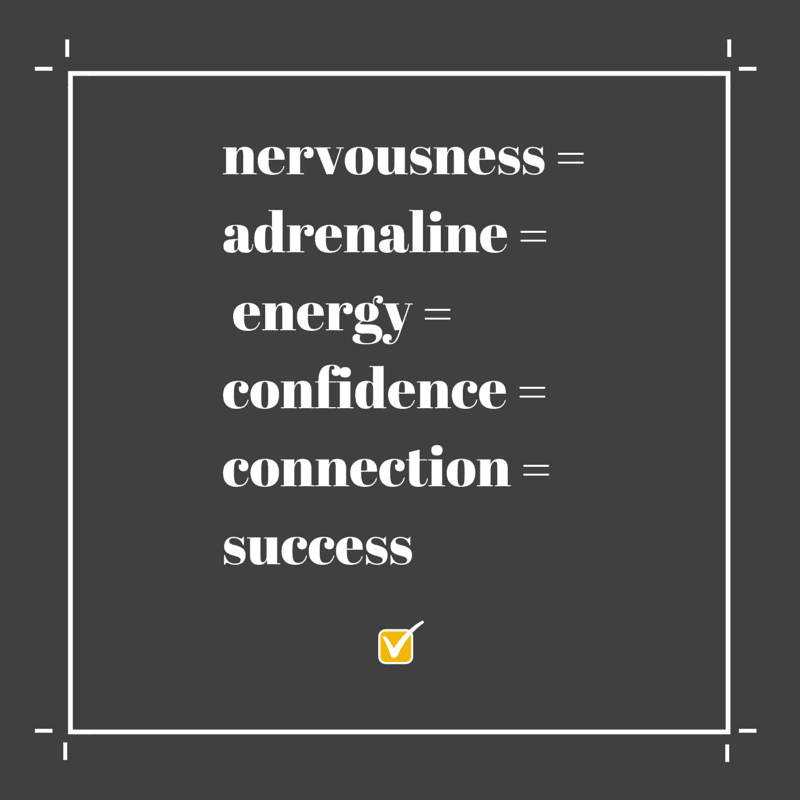
The key to becoming better at anything is to practice. Want to be a better tennis player, gourmet chef or carpenter—practice. Need to make a speech and want it to be terrific? Practice. The physical and mental act of repeating something over and over again can help you learn to do just about anything better. Practice also helps eliminate fear and nerves because practice gives you confidence. You know you’ve done something before and can do it again.
Other tips for successfully learning new skills include paying attention to the teacher or text, and honing your technique by learning what works for you and what doesn’t—then adapting.
Also, it’s important to be patient as the learning process unfolds. You wouldn’t expect to go on stage to play Chopin after five piano lessons would you? Yet many people think that they should be able to get up and give a compelling speech—and be comfortable while they’re doing it—with only a small amount of practice.
To those of you reading this and thinking, “I know myself. No matter how much I practiced I’d never be comfortable speaking--or any good at it either.”
I’d like to disabuse you of that negative and limiting thinking.
The truth is that speaking is far easier than playing piano, and every one of us is good at it. All you and I do is talk. And we manage to get our points across most of the time.
There is a difference when we speak from a stage or to a group, though; we feel more exposed, more vulnerable to judgement, more afraid of making a mistake when all eyes are on us. This causes dread and fear which often leads to the belief that “I can’t do it” or “I’ll fail if I try.” And since we assume we’ll be terrible, when we do get up the courage to speak (because we have no choice), we place so much negative weight on our own shoulders that we’re never as effective as we long to be. To make matters worse we take the memories of that experience on to the next time we have to present to a group. The viscous cycle continues.
But it doesn’t have to. The cycle of fear and less-than-stellar performances can be broken—but it takes practice—and facing your fears.
Here are five things to remember about public speaking:
-
Public speaking is a learned skill—like playing the piano or tennis.
-
The audience doesn’t want you to fail; they are on your side.
-
Practice—committed and prolonged practice—will help you get a handle on your nerves and develop confidence.
-
You should be a bit keyed up. Nervousness will help you seem (and be!) energized, animated and enthusiastic about your topic.
-
Practice will improve every other aspect of your presentation too.
Here are five more bonus tips to help you maintain perspective:
-
No one is ever perfect.
-
At 11 p.m. you are the only one still thinking about your speech.
-
Unless you are teaching surgeons how to operate or airplane mechanics how to fix a jet, making a mistake will not ruin your, or anyone else’s, life.
-
Making occasional mistakes is how human’s learn.
-
You are human.
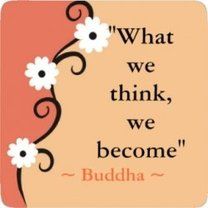
We all know what interpersonal communication is: all our interactions with friends, coworkers, and strangers fall under that category. But before we can have really successful communication with people, especially in social or public speaking situations, we need to cultivate kind, conscious, and positive INTRA-personal communication skills. Those are the skills we use in private--the talk that goes on between out ears, or that we mutter out loud as we look in the mirror in the morning or put dishes into the dishwasher at night. It's the "you idiot" that you yell at yourself when you drop something. Intra-personal communication is the sigh you let out in the morning when you wake up to grey skies. And it's the self-pitying "why me?" or the fearful "I can't!" that goes through your mind when something unexpected happens.
As you can probably guess by now, this kind of talk--these negative affirmations--can be incredibly detrimental to leading a happy life. They can subtly, or not-so-subtly erode your sense of self confidence which impacts your mood, your posture, and your attitude toward others.
By consciously monitoring what you say to yourself and how you react to life's inevitable unexpected moments, over time you can become the kind of person people want to be with, work with, or take advice from. You can come to a place where enjoy the ride that is life--no matter what the weather! You'll also be the kind of person who walks with confidence, smiles easily, and speaks with conviction and compassion. But thinking this way takes practice.
So much of our culture is based on winning--being not just in the top 10, but number one. Not everyone can be number one, right? Does that mean we're ALL losers? Of course not. Sure, the pressure to be perceived as perfect is pervasive, but we don't have to get sucked into that game. Still, practicing positive intra-personal or self talk is a must for all of us. So, try to stop comparing yourself to others (especially the photo-shopped ones!) and just be kind to you. Look in the mirror and see what IS attractive. Say "oops!" instead of "shit!". Focus on your successes--you've had a lot of them or you wouldn't be here, now. And be patient.
Lastly, I'd ask you if the people in your life are good people? Are they honest, kind, loving, smart,discerning, and successful in their own right? Do you respect and admire the people in your life? Well, if you feel that way about them they probably feel that way about you too. If they fit any part of that description they probably try to hang with others who are like them. (That's human nature.) If they like you, you should like you. Say something nice to yourself right now. Pat yourself on the back for reading this blog post. Now go out and make someone else happy, too.
L.D.
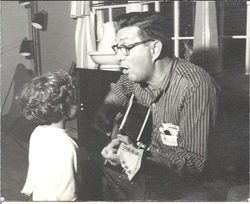
"Memories are the key not to the past, but to the future."
-- Corrie Ten Boom
I often joke that I've never been paid to do anything other than talk, and that's mostly true. On the rare occasions when I've had a desk job I've been miserable. But there is a difference between telling a customer about the daily special in a busy restaurant, sitting behind a microphone, teaching a class at a university, or leading a tour through a museum gallery, or standing on a stage. How I got from tearful meltdown to being a professional speaker is an interesting story.
During my first semester in college I took an acting class. In the very first 10 minutes the professor pointed at me and said "stand up and sing." I looked to my left and right hoping he was talking to someone else, but no, he wanted me to go to the center of the stage and sing. I got up oh-so-reluctantly and stood before my classmates. I was utterly petrified. You see, I can't sing--at all. I had been teased about my singing as a child and that shut me up for good. I lip sync Happy Birthday. And to be fair, even my loving husband says I whistle flat.
So there I was, all eyes on me, sweating and shaking and cursing my decision to take the class. I suggested, meekly, that the professor show mercy and allow me to dance or tell a joke. "SING," he roared. (Come to find out, he'd been a marine drill Sargent.) I could feel my classmates squirming; they were suffering right along with me. The minutes ticked by and I knew I had two choices: run or sing. So I sang--a pathetically soft, flat verse of the Christmas carol, Good King Wenceslas. When I finally whispered the last lines and slunk back to my front row seat, the audience sighed and applauded. I don't remember anything that happened after that except that I took three Valium. (Hey, it was the 70s.) I do know that the next day I dropped the class.
I also know that I was determined never to feel that kind of fear and humiliation ever again.
I joined the college radio station and a eventually took another acting class. I kept talking, although not singing.Eventually, and rather ironically, I had a 15 year career in on-air broadcasting doing everything from rapid-fire traffic reports in a small plane (now, that's scary), to working with a partner in a morning team, to serving as news director for WRCH FM in Hartford, Connecticut. Later, I went back to college and got a Master's degree in English--you'd be surprised by how much speaking you do in grad school--and then I began teaching in high school and college. More recently I joined Toastmasters to further polish my speaking and leadership skills. I've made a few changes to accommodate my growing interest in communication too. I now teach more communications and public speaking classes than I do literature classes at the Community College of Vermont. I also work as a guide at Shelburne Museum and do the occasional commentary on Vermont Public Radio. I have plenty of opportunities to practice speaking. But my favorite thing to do is teach, coach, and mentor.
Teaching communication and coaching people to speak publicly has been profoundly fulfilling for me. I've met so many people who live in fear of public speaking or who arrange their lives so they don't have to do it. This fear silences a lot of voices that should be heard; it prevents questions from being asked, ideas from being shared, and people from moving forward in their careers. I've also found that while at a college we can train someone to do a job, if the student can't walk into a job interview with confidence, shake hands while smiling and making eye contact, and listen carefully in this very noisy world, they are in not going to have a good interview or get the job they may well deserve.
So I teach self confidence. I help people learn how to use (and read) body language, how to find nuance in their voice, how to pick the right words and images for a presentation, how to relax before they make a speech, how to dress for success, and how to listen to understand.
By helping others I have helped myself. I am a happy and fortunate woman--doing what I've always done--talking. And singing. I'm not longer afraid. I'm not too good, but I don't let that silence my voice.
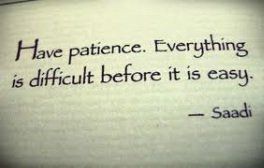
"The biggest challenge, I think for any new artist, is patience."
-- Brett Eldredge
(country singer)
“Practice isn't the thing you do when you're good. It's the thing you do that makes you good.”
-- Malcolm Gladwell, Outliers: The Story of Success
One of the things I tell my adult college students is that they have to be patient while they’re learning to become better public speakers. I point out that adult students are impatient and often have a harder and more stressful time learning new skills because they put so much pressure on themselves. While younger students accept there’s a lot they don’t know, the older we get—and the more competent we are in other aspects of our lives—the less patience we have when we’re asked to do something we perceive as simple, like talking.
But speaking to an audience isn’t simple. Public speaking is an art, and art needs to be practiced and cultivated. Public speaking (once called oration) is also a misunderstood art. Although some of us are less shy or have stronger voices than others, no one is born a good public speaker. Accomplished public speakers, like accomplished athletes or painters, have to learn--and then practice the basics--while on the road to mastery. Fortunately, the building blocks of public speaking are very familiar to all of us: words, tone of voice, smiling, walking, gesturing, using eye contact, and organizing our thoughts.
And while it’s true we’ve been talking all our lives, chances are when we’re speaking publicly we're trying to achieve a goal, from getting a grade to getting a vote, which adds an element of pressure and dread. Students (of any age) bring fears—from niggling to overwhelming--to public speaking situations. They fear making a fool out of themselves, exposing their weaknesses, and being judged on their looks, personality, and intellect. (I'll save the topic of overcoming fear for another time, but for now, believe me when I say that overcoming fear is a learned skill too.)
To return to patience: because most people feel they're familiar with the elements of speaking and that nerves are their biggest hurdle, they often forget the other components of preparing and presenting a successful speech. They want to start at A and jump to Z. And they want to be perfect when they get there. But it's in the process of moving from A to Z that we all become more skillful, effective, and less jittery speakers.
A good presentation begins long before the audience gathers. It begins with the need to share information, with research, planning, writing, and editing. And writing a speech that is well researched, organized, appropriately illustrated, and touches the heart and mind of the audience is a time-consuming business. Still, if you’re committed, the learning curve involved in becoming a better public speaker won't take as long as you think. You’re a grown up now! You have wide and vast experience to draw from. Yes, there are specific skills involving the mind, voice, and body that will take time to master; becoming a confident public speaker is not an overnight affair. But learning to do anything you deem valuable, from painting to playing tennis, is made sweeter by the effort and time you put into learning how to do it well. (Plus, given the right environment, learning is fun. If it weren't, we'd walk off the court or drop the class, and never return.)
So, to recap: to become the public speaker you want to be you have to believe you can learn to be good; you have to internalize the value of learning the skills you'll need to get better; and you have to make a commitment to practice learning the basics, then go from there. In my experience working with adults, practicing patience is a basic. In fact, it's basic number one.
"What I have achieved by industry and practice, anyone else with tolerable natural gift and ability can also achieve."
-- Johann Sebastian Bach

